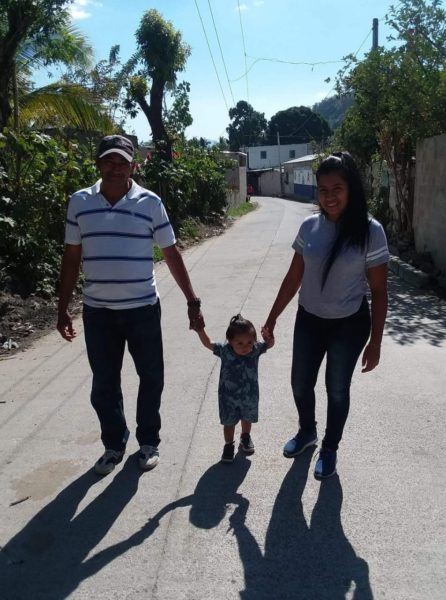Persevering in El Salvador. How this father is giving his family a better life.
Cuscatlán, El Salvador — Much of what we hear from Central America in recent years focuses on the stories of refugees who have fled faltering economies and challenging circumstances. This is the story of one man from El Salvador who sought – and found – the resources that he needed to change his life circumstances and support his family of nine.
If you’re familiar with global philanthropy, you may have heard of the term “smallholder farmer.” These are farmers who cultivate a small plot of land where they grow a small variety of crops. Overall, their impact is anything but small – they provide more than 80% of the food consumed in most of the developing world.
This work is challenging. Beyond the physical toll, farmers’ success is often determined by forces they can’t control. Furthermore, smallholders often lack access to resources (like financing and technology), the knowledge of best agricultural practices (like proper planting and irrigation), and the ability to connect to markets where they can sell their crops for fair prices.
Three years ago, Ulises Arturo Merchez, dreamed about paying off his debt and providing for his large family through the sale of corn and tilapia. Faced with many of the same challenges as other smallholders in developing countries, he had difficulty growing and selling high-quality produce. Even if he did have produce to sell, the markets with the best prices were far away. Ulises either had to make the arduous journey himself, with no guarantee of a buyer, or sell to a middleman (coyote, as they are known in El Salvador) who would take a large cut of the profits.

Ulises with his daughter and granddaughter
Ulises had heard about the work of the Clinton Giustra Enterprise Partnership (CGEP) and got in touch with Carlos, an aquaculture expert and mentor working with CGEP’s local agribusiness, Acceso El Salvador. Carlos was able to help Ulises adopt new best practices for sustainable fishing, showing him how to improve production quality and connecting him with a secure market – a large, local supermarket chain – interested in his tilapia.
Through Acceso, Carlos also helped provide Ulises with high-quality supplies, including fish food. Since he first started working with CGEP, Ulises has seen his income increase from $500 to $800 each month, allowing him to pay off his debt, grow his business, and even make incremental improvements to his home. “I dreamed about giving my family the best quality of life possible,” Ulises says, “Working with CGEP has allowed me to improve the quality of life for me and my family. Sales are constant now, giving me the opportunity to invest in new equipment.”
The Clinton Giustra Enterprise Partnership works with many farmers like Ulises in El Salvador, Colombia, and Haiti, connecting them to secure markets, allowing them to increase their incomes and shift their focus from daily survival to long-term plans for continued expansion.
There’s nothing small about smallholder farming; it’s a critical part of the global economy. With the right training and resources, Ulises – and farmers like him – can grow into entrepreneurs who support the millions of households that depend on small-scale farming for their food and livelihoods.
“There’s nothing small about smallholder farming; it’s a critical part of the global economy.”ALETHIA KANG


